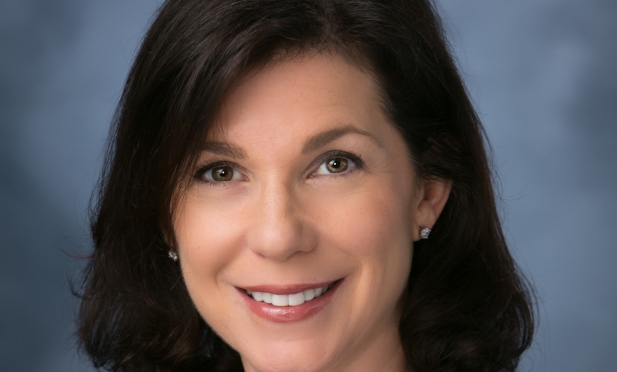 Spivak says the national affordable housing need will continue with a limited pool of subsidy sources.
Spivak says the national affordable housing need will continue with a limited pool of subsidy sources.
SAN FRANCISCO—Bank of America Merrill Lynch community development banking provided a record $4.7 billion in loans, tax credit equity investments and other real estate development solutions last year, surpassing 2017's record financing of $4.53 billion. It deployed $3 billion in debt commitments and $1.7 billion in new equity investments by financing affordable housing, charter schools and economic development across the United States.
These efforts are part of the company's commitment to deploying capital to address global issues outlined in the United Nations sustainable development goals. In this exclusive, Sindy Spivak, West region executive of community development banking with Bank of America Merrill Lynch, discussed last year's activity, the impact of the bank's first social bond and what's on the horizon for 2019.
GlobeSt.com: How do you expect this year to compare to 2018?
Spivak: We expect the continued need for affordable housing nationally and with a limited pool of subsidy sources. Last year, we saw pricing volatility in the low-income housing tax credit market post-tax reform as well as higher interest rates than recent past years.
In 2018, we had a very strong year on our FHA platform, closing nearly $150 million in financing. This is more than in all previous years combined and we expect that to grow in 2019. In 2018, we financed more than 600 workforce housing units (80 to 120% of area median income) across 10 developments. None of these developments allocated more than 50% of the units to households earning greater than 80% of AMI.We anticipate our clients will increasingly turn to FHA to finance both LIHTC and workforce housing developments, given the attractive terms of this financing.
GlobeSt.com: What types of trends and overall outlook are to be expected for 2019?
Spivak: While we expect the industry to continue facing challenges, our commitment to lending will remain strong in 2019. We've seen our clients come to us for larger deals–more units and financing–because they know we can take on projects of this size and scope. Multi-phase, multi-year projects can be complex and require a significant commitment but they also make a significant impact on the community. We are well positioned to provide this financing.
Developers are placing a priority on tenant programming and supportive services to assist residents, contributing to the long-term sustainability of the community. This includes financial education and literacy, job training and career development, parenting classes, access to healthcare and providing a link to the broader community and its resources. We've seen the significant benefits they achieve, including increased high school graduation rates, employment and quality of health, which help build strong and healthy communities.
We see greater interest and need for work-force housing, both construction and preservation. We have earmarked capital to help support this effort. We are also keeping an eye on construction and land costs, especially in higher-priced markets.
GlobeSt.com: Bank of America issued its first social bond. What is its impact?
Spivak: In January 2019, Bank of America issued its first social bond, becoming the first US bank to do so. The net proceeds will refinance the company's investments in affordable housing and community development financial institutions, supporting the company's efforts to address pressing issues that impact low- to moderate-income neighborhoods in the United States.
GlobeSt.com: What were the highlights of the deals that Bank of America Merrill Lynch financed in 2018?
Spivak: These efforts are driven by creating affordable housing for individuals, families, seniors, students, veterans, the formerly homeless, those with special needs and other at-risk groups. Some projects that closed in 2018 include Jordan Downs in Los Angeles, Harlem Hebrew Language Academy in New York City, Wisdom Village of Northlake II in Northlake, IL; Plaza Hotel in El Paso, Brighton Marine in Boston, and Village on Mercy Apartments in Orlando.
GlobeSt.com: What are some highlights worth noting from last year's lending and investing activities?
Spivak: We remain committed to financing deals that make a significant impact on the communities we serve. Community development banking takes a holistic approach to help provide safe affordable housing, educational opportunities and economic development to help support the long-term sustainability of communities across the country.
© Touchpoint Markets, All Rights Reserved. Request academic re-use from www.copyright.com. All other uses, submit a request to [email protected]. For more inforrmation visit Asset & Logo Licensing.







